¤ «Krautrock – The Rebirth of Germany»: This BBC Four documentary looks at how a radical generation of musicians created a new German musical identity out of the cultural ruins of war.
looks at how a radical generation of musicians created a new German musical identity out of the cultural ruins of war.
Between 1968 and 1977 bands like Neu!, Can, Faust and Kraftwerk would look beyond western rock and roll to create some of the most original and uncompromising music ever heard. They shared one common goal – a forward-looking desire to transcend Germany’s gruesome past – but that didn’t stop the music press in war-obsessed Britain from calling them ‘Krautrock’. ⇒
– Popol Vuh — Aguirre I L’acrime de Rey
– Jimi Hendrix — All Along the Watchtower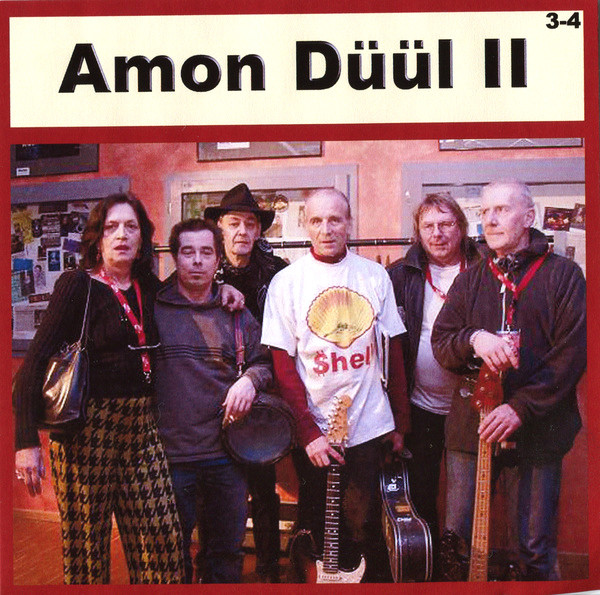
– Richard Wagner — Siegfried’s Funeral Music
– Amon Düül II — Kannan + — Luzifer’s Ghilom
– Popol Vuh — Wehe Khorazin + — Aguirre II
– Tangerine Dream — Phaedra
– Cluster — Fur Die Katz
– Tangerine Dream — Fly and collision of Cosmo Sola
– CAN — Mother Sky + — Vitamin C
– Kraftwerk — Autobahn
– Neu! — Hallogallo
– Faust — Krautrock
– Kraftwerk — Showroom Dummies + — Geiger Counter + — Radioactivity
– Harmonia — Watussi
– David Bowie — A New Career in a New Town
↑ Amon Düül II←
•→ A summary of German rock music ⇐
More than any other band, Can, formed in Cologne by two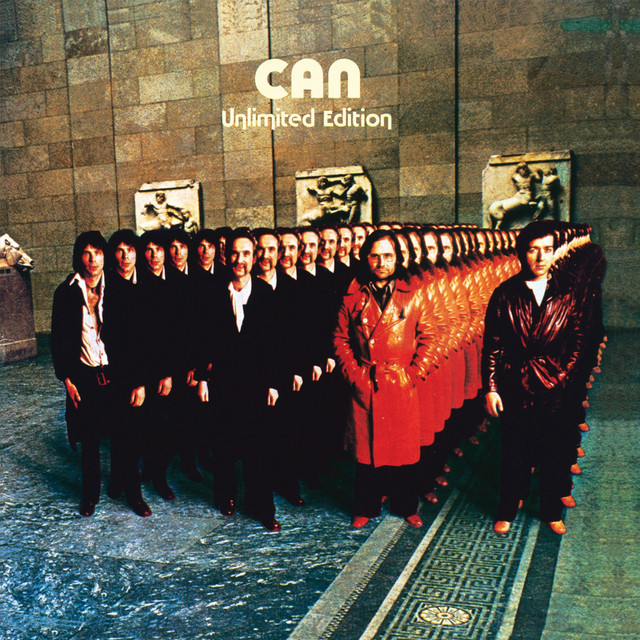 classically-trained musicians, bassist Holger Czukay and pianist Irmin Schmidt (both alumni of Karlheinz Stockhausen), and by Globe Unity’s free-jazz drummer Jaki Liebezeit, transformed progressive-rock into a science. By bridging electronic music, jazz music and rock music, Can accomplished the first organic study on rhythm and texture. Their hypnotic and glacial instrumental jams straddled the line between free-jazz, acid-rock and chamber music. While pursuing an erudite divertissement of Cage’s aleatory music and Schoenberg’s atonal music, while experimenting with the potentialities of electronically-manipulated instruments, while favoring subdued, fragmented, loose structures and sinister, menacing atmospheres, Can became masters of a new electro-acoustic form of music… [Piero Scaruffi]
classically-trained musicians, bassist Holger Czukay and pianist Irmin Schmidt (both alumni of Karlheinz Stockhausen), and by Globe Unity’s free-jazz drummer Jaki Liebezeit, transformed progressive-rock into a science. By bridging electronic music, jazz music and rock music, Can accomplished the first organic study on rhythm and texture. Their hypnotic and glacial instrumental jams straddled the line between free-jazz, acid-rock and chamber music. While pursuing an erudite divertissement of Cage’s aleatory music and Schoenberg’s atonal music, while experimenting with the potentialities of electronically-manipulated instruments, while favoring subdued, fragmented, loose structures and sinister, menacing atmospheres, Can became masters of a new electro-acoustic form of music… [Piero Scaruffi]
•→‘Halleluhwah’⇐ // •→ ‘Vitamin C’ ⇐ // •→‘Dizzy Dizzy ‘⇐ // EFS no 8 ⇑
♦→ ‘. . . And More’ ⇐ [Westbam & Jankuhn mix: CAN – Sacrilege]
∞ Irmin Schmidt & Kumo ↓ ‘Flies, Guys & Choirs’ – PART 2 [Axolotl Eyes – 2008]
¶ JAH WOBBLE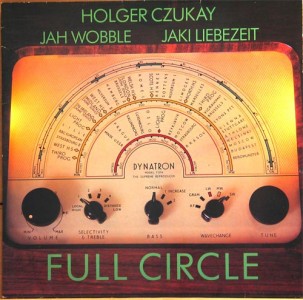
+ JAKI LIEBEZEIT
+ HOLGER CZUKAY
• How Much Are They? ⇓ . . . [1981]
◊→ Persian Love Song ⇓ Holger Czukay (1979)
Clips of an Iranian singer recorded off the short-wave backed up with lilting guitar and keyboard riffs that sparkle like light.
◊ Let’s Get Hot ⇓ «…Let’s get hot! Let’s get cool!»
This new version «Let’s Get Hot» is the result of the original track «Cool In The Pool» recorded in Holger’s home lab in Cologne 1979. Sometimes absurdity can become the mother of invention. When Czukay was working on the music of «Cool In The Pool» it finally became necessary to search also for a lyric. While he was sitting down on a sofa in his studio he was opening the middle pages of a photo magazine where a huge headline jumped out: ‘This Nonsense Has Method’. This became the first line of «Cool In The Pool» which Czukay put in the middle of the song. While the instrumental track kept running in a loop it turned into a dancefloor mix for sweaty basement clubs.
∇ ‘Smoke’ ⇓
¤ Jaki Liebezeit ↓ interviewed
A founding member and drummer of Can, a band known for their improvisation, preferring often to create music they referred to as instant compositions. Jaki Liebezeit is currently working with Burnt Friedman, pursuing a vision of new music. In this video, WatchMojo.com speaks with Liebezeit about Can, and his own music.
∞ JAKI LIEBEZEIT & BURNT FRIEDMAN ↓ ‘Mikrokasper’ [2006]
◊→ MAGNETIK NORTH (= Jaki Liebezeit & Ian Tregoning) ↓ [e v o l v e r – 2006]
>←’Nocturne’
♦ → CLUSTER & ENO ↓ TZIMA N’ARKI [After the Heat, 1978]
«TZIMA N’ARKI» is reversed speech for «ECONOMIES» = an anagram for «ENO IS COME»
The lyrics and vocals to this song were recorded in reverse by Brian Eno. When the song is played backwards, you can hear what the actual lyrics are: ‘King’s Lead Hat’ [from ‘Before And After Science’]. Composed and played by Hans-Joachim Roedelius, Dieter Moebius & Brian Eno.
Emoc ylerus lliw ti, emoc lliw ti, emoc lliw tiErif eht ni rekop eht saw tah dael s’gnik
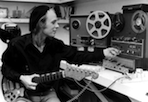 Emoc ylerus lliw ti, emoc lliw ti, emoc lliw ti
Emoc ylerus lliw ti, emoc lliw ti, emoc lliw ti Rediw hcum nozamA eht edam tah dael s’gnik
… Yrots ym ot denetsil dah doG fi
Deneppah evah reve dluow siht fo enon
Yrots ym ot denetsil dah doG fi
Derrucco dah reve dluow siht fo enon
Noitamrofni suoicerp em evag uoy
Gninrom yranigami taht no
Noitarepsed ni nwod ti etorw I
Devres eb ot eciton eht tuo evag dna . . .
Reh edisni ecneconni eht tup tah dael s’gnik
Emoc ylerus lliw ti, emoc lliw ti, emoc lliw ti
Erised ot remmah a saw tah dael s’gnik
Yrots ym ot denetsil dah doG fi . . .
♦ Eno, Moebius, Roedelius ↓ ‘Broken Head’ (Automat Rework_2013)
I was just a broken headI stole the world that others punctured
Now I stumble through the garbage
Slide and tumble, slide and stumble Beak and claw, remorse reminder – Slide and tumble, slide and stumble
Back and forth and back to nothing – Keep them tidy, keep them humble Chop and change to cut the corners – Sharp as razors, shiny razors
Stranded on a world that’s dying – Never moving, hardly trying I was just a broken head . . .
♦ Eno + Moebius + Roedelius ↓ The Shade [‘After the Heat’ – 1978]
Cluster (originally Kluster) was formed by Dieter Moebius, Hans-Joachim Roedelius and Conrad Schnitzler (who left the band in 1971). As a duo, Moebius and Roedelius recorded many landmark LPs, and with all manner of guest artists from Brian Eno to Conny Plank to Neu!’s Michael Rother (Harmonia).
→ Popol Vuh ← . . . → Popol Vuh ←
•→ ‘Gemeinsan tranken sie den Wein’ ⇐ / •→ ‘Wehe Khorazin’ ⇐
◊→ ‘Selig sind die Sanftmütigen. Ja, sie werden einst die Erde erben’ ⇐ [‘Seligpreisung’_1973]
«Blessed are the patient, they shall inherit the land…» [Bible’s Sermon on the Mount]♦ ‘Abschied’ ↓ [‘Hosianna Mantra’ – 1973]
◊ ‘Ja, Deine Liebe Ist Süßer Als Wein’ ↓ [Das Hohelied Salomos – 1975]
◊ ‘Du schönste der Weiber’ ⇓ [Das Hohelied Salomos – 1975]
♦ ‘Morgengruss II’ ↓ [Aguirre – 1975]
♦ ‘Vergegenwärtigung’ ↓ (part 1)
•→‘Letzte Tage, Letzte Nachte’ ⇐[Vocals: Renate Knaup & Djong Yun, 1976]
◊ ‘Gemeinschaft’ ↓ [Herz aus Glas / Heart of Glass_1977]
♦ Brüder des Schattens / Sohne des Lichts ↓ ‘Die Umkehr’_1978
◊ Der Tod Des Cobra Verde ↓ [1987]
◊ ‘Grab der Mutter’ – [Cobra Verde]
◊ ‘Compassion’ ↓ [For You and Me _ 1991]
♦ ‘Yes’ ↓ [Shepherd’s Symphony _ 1997]
¤ In memory of the 10th anniversary year of the death of the band’s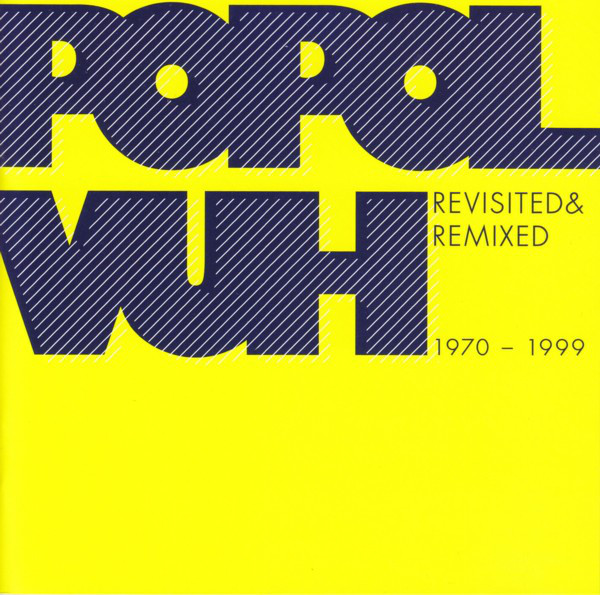 founder Florian Fricke [1944-2001], «Popol Vuh Revisited & Remixed (1970-1999)» combines selected Popol Vuh tracks, new bonus material and eleven remixes of Popol Vuh by Avant-garde bands, electronic musicians and DJs of the day
founder Florian Fricke [1944-2001], «Popol Vuh Revisited & Remixed (1970-1999)» combines selected Popol Vuh tracks, new bonus material and eleven remixes of Popol Vuh by Avant-garde bands, electronic musicians and DJs of the day
1 → Aguirre I/II (Lacrima Di Rei) ←(Haswell & Hecker Remix)
2 → In Den Garten Pharaos ←
3 → Nachts – Schnee ←
4 → Through Pain To Heaven ←
5 → Heart Of Glass ←(Sei Still Wisse Ich Bin edit)
6 → Aguirre I/II (Lacrima Di Rei edit)← (Peter Kruder Remix)
* * *



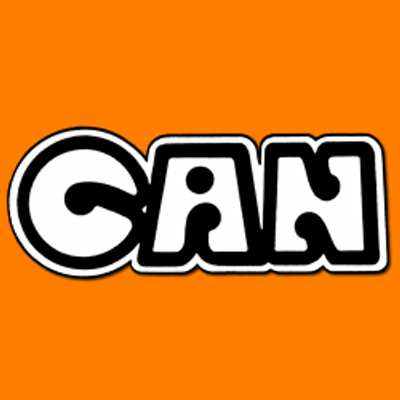
Deja un comentario